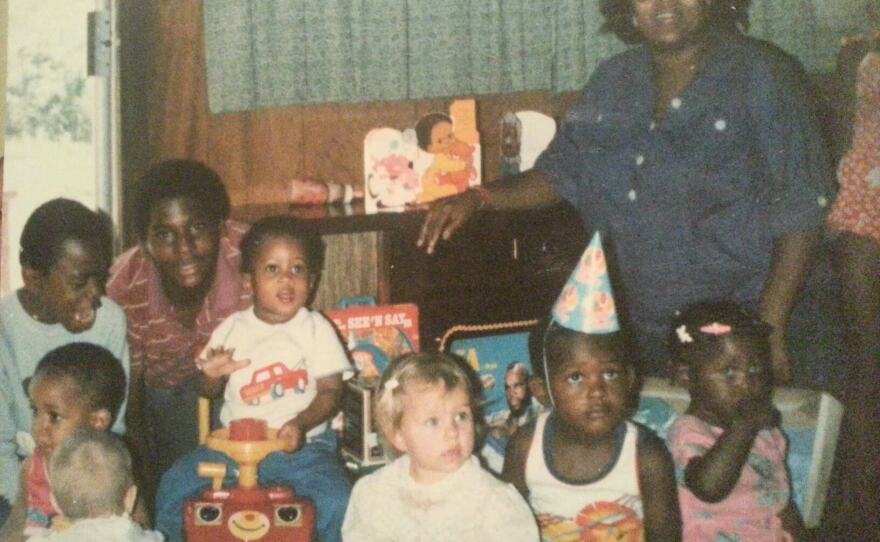Walden Family Services is one of the agencies that serve foster children in San Diego County.
“We specialize in taking in children who have behavioral and mental health challenges, who have special health care needs, who have developmental delays, who are LGBTQ,” said Teresa Stivers, the CEO of Walden Family Services. “They may come from large sibling groups. They may be older children of color. These are the children that are most difficult to place in loving homes.”
Walden offers a treatment team that helps individualize what each child needs. Nurses, mentors, training and peers are available to each child and family going through Walden.
Stivers said the pandemic didn’t put a stop to their work with foster children.
“We continued to place children during the pandemic. We placed children who had COVID. Our nurse came up with a plan, and the families agreed to quarantine. So we worked non-stop as essential workers. It didn't stop for us just because of the pandemic,” she said.

As children begin to return to school and extracurricular activities outside of their homes, Stivers said she expects the child welfare system will be busier than ever this next year.
“We are very concerned. Children are being seen for the first time in over 12 months. Being seen by all the mandated reporters, whether they're in the doctor's offices, in sports, in schools. So, a huge number of children are entering into the foster care system due to all of the stress, abuse and neglect that's happened over the pandemic,” Stivers said.
Although changes have been made to the foster care system, including expanding foster care to youths aged 18 to 21, Stivers said more resources, donations and foster families are always needed.
Foster care in San Diego County has gotten more attention, as a move has been made to close a North County group home for foster youth called San Pasqual Academy.
The closure comes after AB 403 was signed into legislation by Gov. Edmund G. Brown Jr. in October of 2015.
The “Continuum of Care Reform” bill eliminates most group homes to improve the outcomes for youth in foster care. The ultimate goal was to maintain “a stable permanent family” for foster children.
Congregate care and the use of group homes were to be limited to short-term therapeutic interventions. Implementation efforts for AB 403 have been occurring in stages since its passing in 2015.
The importance of having consistency and a family unit in a foster child's life is what made Walden Family Services shift their own model.
“When we see the youth who enter our program at 18 from a group home, the majority of them don't have a GED, they have no life skills whatsoever. They don't know how to live independently or out in the community. They've been told what to do every day, every minute of their lives,” said Stivers.
In 1976, when Walden Family Services was established, they only worked with group homes.
“We changed very quickly to move into foster care in a family situation because, if we don’t teach these children to learn how to live in a family situation when they're young, when are they going to learn? It's going to be much more beneficial to them as they get older,” said Stivers.
Rajah Gainey can attest that placement into a family setting has a better outcome for foster children.
When Gainey was born, the day he left the hospital was the day he entered the foster care system. It seemed he wouldn’t be in the system for long because at two years old he got adopted.
“It should've been my time to just stay with a regular family," he said. "But unfortunately, a couple years later my adoptive mom had a stroke and started having health issues,”

At 6 years old, Gainey’s adoptive mom passed away and he re-entered the foster care system.
“Between seven to 11 (years old), I went through, probably, nine or 10 different foster homes and probably four or five different schools. I had been in a couple of different group homes by that time too,” said Gainey.
Gainey said through his experience, he preferred the family settings over the group homes.
“Just kind of like summer camp, extended summer camp. It was fun for a kid but for my education, it really suffered," Gainey said. "I had challenges when I was moving back to certain foster homes, moving to new schools. So obviously if you’re somewhere for an extended period of time, once you get back to your regular routine it's a challenge.”
At 11 years old, Gainey was referred to Walden Family Services, where he was placed with a family and matched with a mentor. Gainey stayed with Walden until his 18th birthday. He graduated from high school and went on to attend Cal State San Marcos.

Gainey and his mentor Ed Earl remain friends after 26 years.
Today, Gainey is a part of the Board of Directors at Walden Family Services and works at San Diego State University helping bring historically disadvantaged students to live on campus.
Gainey said he hopes to bring his lived experience as a former foster youth to improve policies, funding and programs for youth and marginalized communities.







